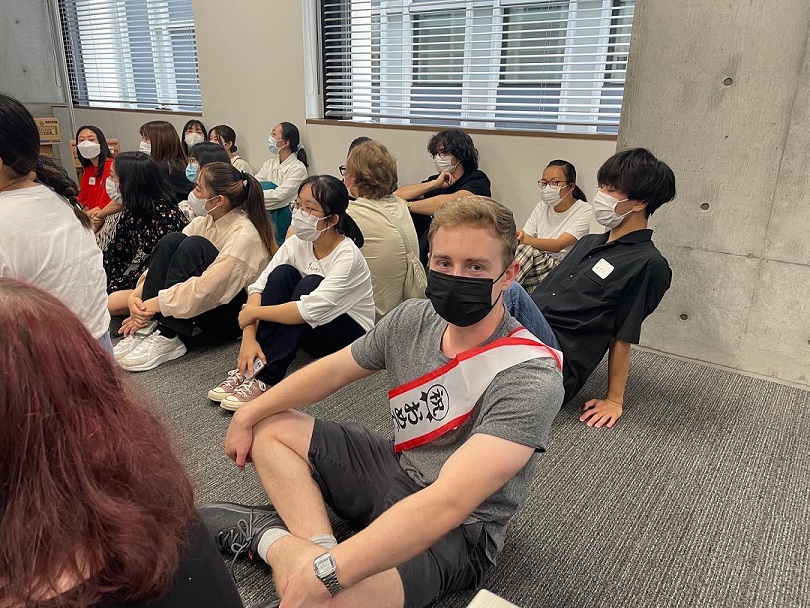Parent and Family Resources
Funding
Cost
The cost varies depending on the program your student has chosen. Your student has given an estimated budget sheet from the Education Abroad Office. More information can also be found on the provider’s website.
Financial Aid
The University of Toledo financial aid may be applied to study abroad and exchange programs, programs offered through Ohio International Consortium (OIC), and programs offered through affiliated third-party providers such as University Studies Abroad Consortium (USAC), CIS Abroad, International Studies Abroad (ISA), and Semester at Sea.
Scholarships
For information about scholarships, check out our Funding page.
 Health and Safety
Health and Safety
What the UToledo Education Abroad Office does to keep your student safe:
-
- Monitors security list-serve and State Department warnings daily.
- Requires faculty directors to submit a trip itinerary and an Emergency Action Plan, which details in-country resources in the event of an emergency.
- Maintains a 24-hour emergency line with a staff member on-call at all times.
- Requires students to register with the U.S. embassy in their country. The embassy can provide assistance to students in many emergency situations.
- Enrolls students in mandatory international health insurance for the duration of their time abroad.
Health Insurance
Everyone participating in UToledo sponsored education abroad experience is required to enroll in a mandatory international health insurance policy identified by the Education Abroad Office. For more information on the policy and its coverages, go to UToledo's Foreign Travel Insurance and Assistance Services.
Those students traveling on a U.S.-based program must verify that they are enrolled in a valid domestic insurance policy.
Applying for a Passport/Visa
It is recommended that at least one parent or support person have a valid U.S. passport in case of emergency. If you need more information on how to apply for a passport, please visit the U.S. Department of State website.
The Center of International Studies and Programs can assist the UToledo community members in obtaining a passport for an overseas learning experience. For more information, visit the CISP Passport page.
Supporting Your Student
How a Parent Can Help: While Your Student is Abroad
- Listen to their exciting stories and remember these for the future when times may become more challenging for them.
- It is important for you to be supportive. Listen carefully and try to find out exactly what is upsetting your student.
- Make a suggestion for your student to talk with the on-site staff. They have experience in helping students adjust during the initial period abroad.
- Listen to your student’s stories and congratulate them on adapting to their new surroundings and culture.
- As a parent, you may not understand what your student is going through. It may be enough to be aware that culture shock exists and that it probably will affect you student in some way.
Culture Shock and Adjustment
Your student may experience culture shock, including a roller coaster of emotions, as they study abroad. For information on helping them adjust, visit Go Overseas Parents Guide to Study Abroad.
It is important to remember that this shock is part of your student's adaptation and a very normal process. These are feelings that are commonly experienced by anyone going through a major transition. Even those who regularly travel abroad can experience this. It is important that your student does not feel ashamed about their reactions to new situations. Acknowledge them and try not to let the negative feelings cloud their entire experience.
How a Parent Can Help: Once Your Student Has Returned
- Listen to their exciting stories and remember these for the future when times may become more challenging for them.
- It is important for you to be supportive. Listen carefully and try to find out exactly what is upsetting your student.
- Make a suggestion for your student to talk with the on-site staff. They have experience in helping students adjust during the initial period abroad.
- Listen to your student's stories and congratulate them on adapting to their new surroundings and culture.
- As a parent, you may not understand what your student is going through. It may be enough to be aware that culture shock exists and that it probably will affect you student in some way.
- Listen to your student's stories without cutting them short. Your student may want to talk for hours about their experience abroad. Many of their friends will not have the time or patience for this, so your student may rely on you.
- Encourage your student to stay in contact with their friends abroad.
- Make a suggestion for your student to get involved with international activities on their college campus once they return.
- Your student may come back feeling more independent than before they left. Be patient and open-minded and look for ways to accept this new independence. Rules that were in place before they left may need to be adjusted.
Reverse Culture Shock
Once students return to the U.S., they may experience reverse culture shock. For ways to help them readjust to life in the U.S., visit How to Deal With Reverse Culture Shock After Studying Abroad.


